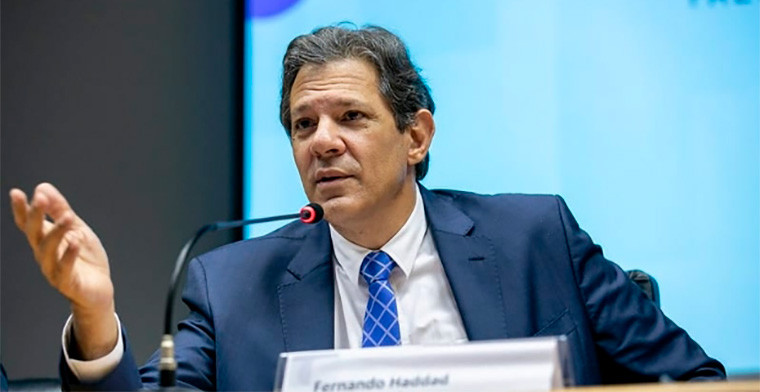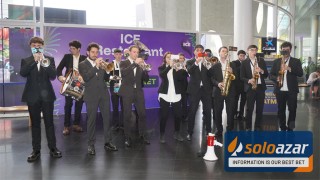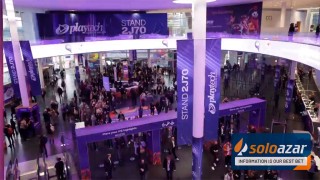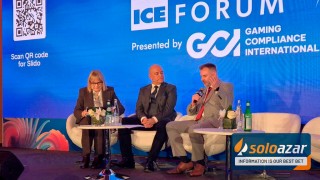Treasury is trying to prevent the regulation of sports bets from turning into a tax war in Brazil
Thursday 15 de February 2024 / 12:00
2 minutos de lectura
(Brasilia).- The Treasury is preparing to issue at least twelve ordinances to reinforce that, for the time being, betting cannot be sanctioned by state managers

At the end of 2023, the House of Representatives finally approved the regulation of the online sports betting market, whose law was subsequently sanctioned by the government of Luiz Inácio Lula da Silva.
Fernando Haddad's Ministry of Finance has played an essential role in gambling, creating rules to improve the security of the business, both for companies and bettors, and making room for the taxation of the sector, which could yield up to 15 billion reais in taxes and grants by 2024, according to estimates.
On the other hand, Governors Ratinho Júnior (PSD) of Paraná and Cláudio Castro (PL) of Rio de Janeiro have begun sending notices to companies demanding that they pay a grant of 5 million reais so that they can sell their bets in those states.
This has caused a belt of tension that has reached the football clubs, which are now very dependent on sponsorship from betting companies.
The fear within the market is that the state actions will cause unwanted legal instability, at a time when, after five years of waiting (the law that authorised the betting lottery was passed in of 2018), the Union assumed its responsibility as referee and began to whistle the rules of the match.
The governments of Paraná and Rio are relying on a loophole to try to profit from the betting business - in this case, a 2020 decision by the Federal Supreme Court that ended the federal government's monopoly on lottery operations. "We were only quicker than the Union," says Daniel Romanowski, CEO of the lottery company Lottopar in Paraná. In addition to Rio and Paraná, the government of Paraíba has already opened up accreditation and Minas Gerais has created its own bet. Among the attractions offered by the states is the value of the licence, since the national fee can cost six times as much, reaching usd 6 millions.
The advance in the business has the potential not only to cause legal confusion, but also a fiscal war. For the president of the National Association of Games and Lotteries (ANJL), Wesley Cardia, it's up to the Treasury to quickly regulate the market and thus prevent situations that he believes are illegal.
Betting lawyers also warn of the risk of other states entering the dispute with even lower grant amounts and income tax rates on Gross Gaming Revenue (GGR), which is the difference between the amount collected from bets and the amount paid out in prizes. The Federal Government has set rates of 12 per cent - Rio charges 5 per cent and Paraná, 6 per cent.
The ministry is preparing to issue at least twelve ordinances to reinforce that regulation is underway and that, for the time being, bets cannot be sanctioned by state managers. By the end of this period, Haddad's team promises to deliver complete regulations, including the rules for issuing state licences so that they don't cannibalise the federal ones.
In addition, there is a concern to create an inspection system capable of stopping attempts at tax fraud, such as a bet with a local licence allowing betting on games in the rest of the country. In Rio, for example, the Loterj system only requires a declaration from the bettor about their address.
After years of operating in a grey area, Brazilian companies and society are urgently waiting for a clear and definitive definition of what will apply. The number of companies that responded to Fazenda's call for interest (134) shows that the market no longer wants to remain outside the legal field. According to the Treasury, state lotteries can operate in the same league, but the limits are yet to be defined. As a result, those who entered the game before the ball rolled under the new rules run the risk of being barred.
By Adriana Ferraz
Categoría:Legislation
Tags: Sin tags
País: Brazil
Región: South America
Event
ICE Barcelona 2026
19 de January 2026
Merkur Group Shines in Barcelona with Triple ICE Triumph
(Espelkamp/Barcelona).- Merkur Group secures three prestigious international accolades for operational excellence, social commitment, and standout exhibition experience.
Friday 06 Feb 2026 / 12:00
Eduardo Aching: "ICE 2026 was an exceptional event for Konami and its casino partners"
(Barcelona, SoloAzar Exclusive).- Eduardo Aching, Vice President of iGaming & International Gaming Operations at Konami Gaming, reflects on the company’s standout participation at ICE 2026, the strong reception to Solstice 49C and Konami Online Interactive, and the strategic push toward emerging regulated markets and expanded global partnerships.
Friday 06 Feb 2026 / 12:00
Belatra Games Strengthens LatAm Expansion and Innovation Strategy After ICE Barcelona 2026
(Barcelona, SoloAzar Exclusive).- Kateryna Goi, Chief Marketing Officer at Belatra Games, shares her assessment of the company’s participation in ICE Barcelona 2026, the quality of industry engagement at the event, and the strategic priorities shaping Belatra’s growth in 2026, with a strong focus on Latin America and narrative-driven innovation.
Friday 06 Feb 2026 / 12:00
SUSCRIBIRSE
Para suscribirse a nuestro newsletter, complete sus datos
Reciba todo el contenido más reciente en su correo electrónico varias veces al mes.



















